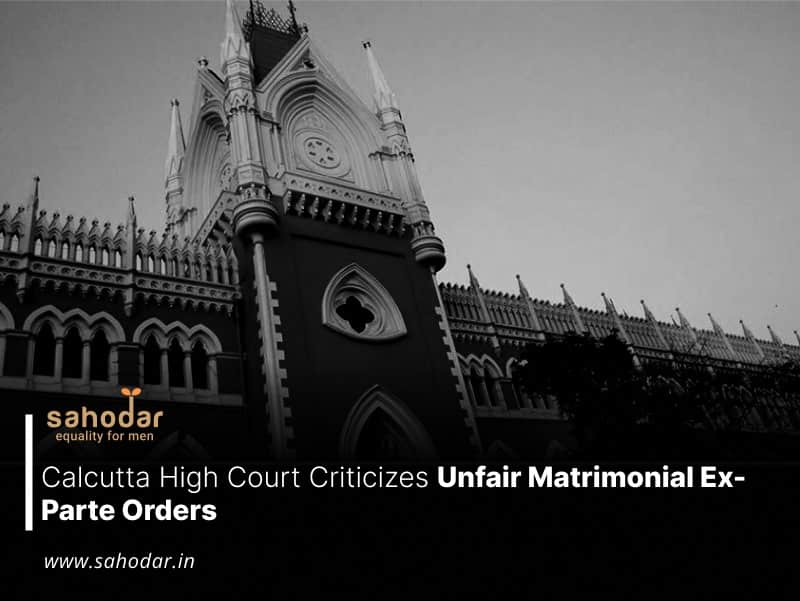Justice Shampa Sarkar made the observation while dealing with a husband’s plea challenging at least four orders passed ex-parte and in favour of his estranged wife in a matrimonial suit.
The Calcutta High Court has recently made an observation concerning the inequity associated with the issuance of ex-parte orders within matrimonial proceedings. These orders, rendered without the opportunity for both parties to present their case, carry the potential for substantial societal, financial, and emotional consequences, as exemplified in the case of Surya Chandra Mishra v. Chitrangana Debnath.
Justice Shampa Sarkar conveyed this observation during the adjudication of a petition submitted by a husband. The petitioner contended that during the current year, on at least four instances, the court extended the deadline for his wife to submit her written statements in their matrimonial dispute without granting him the opportunity to present his viewpoint.
The Court expressed its disapproval of this practice, thereby bringing attention to its concerns.
“An ex-parte decision in the matrimonial suit would be unjust. Such decision would not only have a social impact but also a financial and a strong emotional impact.”
The husband also alleged that these orders were issued in the absence of any formal application for an extension of time by his wife. He contended that the issuance of such orders should be contingent upon the submission of a formal application.
Nevertheless, the Court held a differing perspective on this issue.
“In my opinion, the contention of the petitioner is technical. Rules of procedure are handmaid of justice. They are used as a shield not as a sword. Thus, even if there was no formal application for extension of time to file the written statement, the learned court exercised discretion and allowed the respondent to file the written statement.”
The Court proceeded to assert that the administration of justice would be optimally realized by affording both parties the opportunity to actively engage in the legal proceedings and contest the suit to the fullest extent.
In its final determination, the High Court declined to set aside the interim orders rendered by the family court and issued instructions for the family court to resolve the case within a one-year timeframe.

